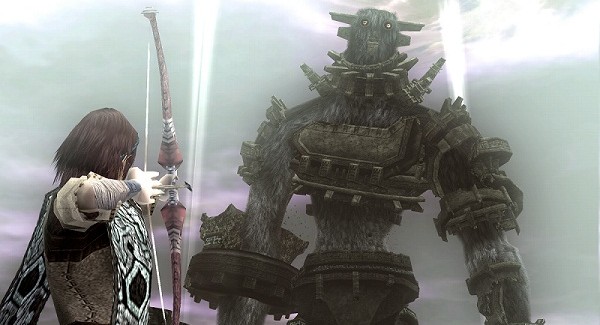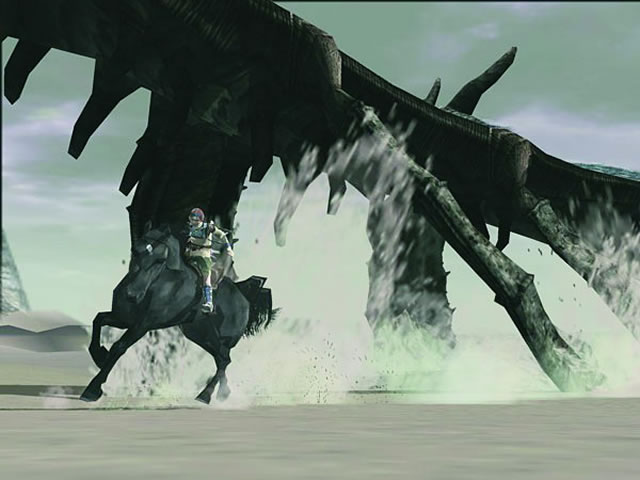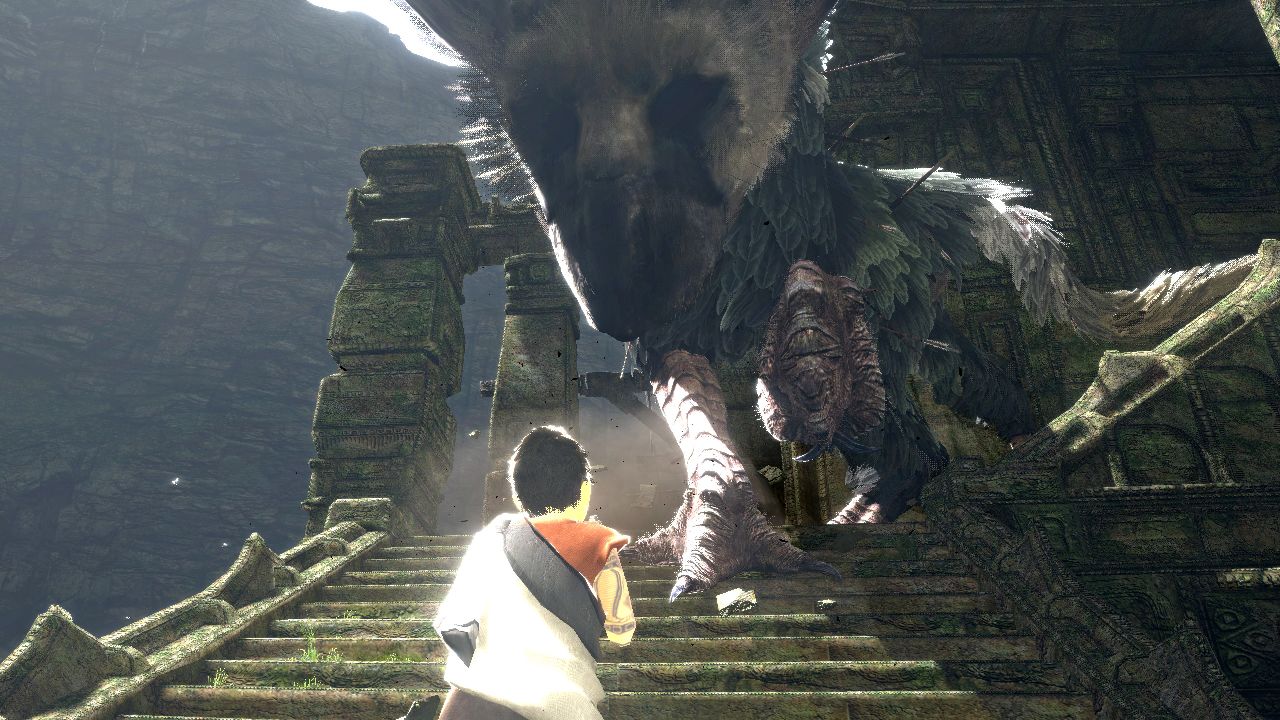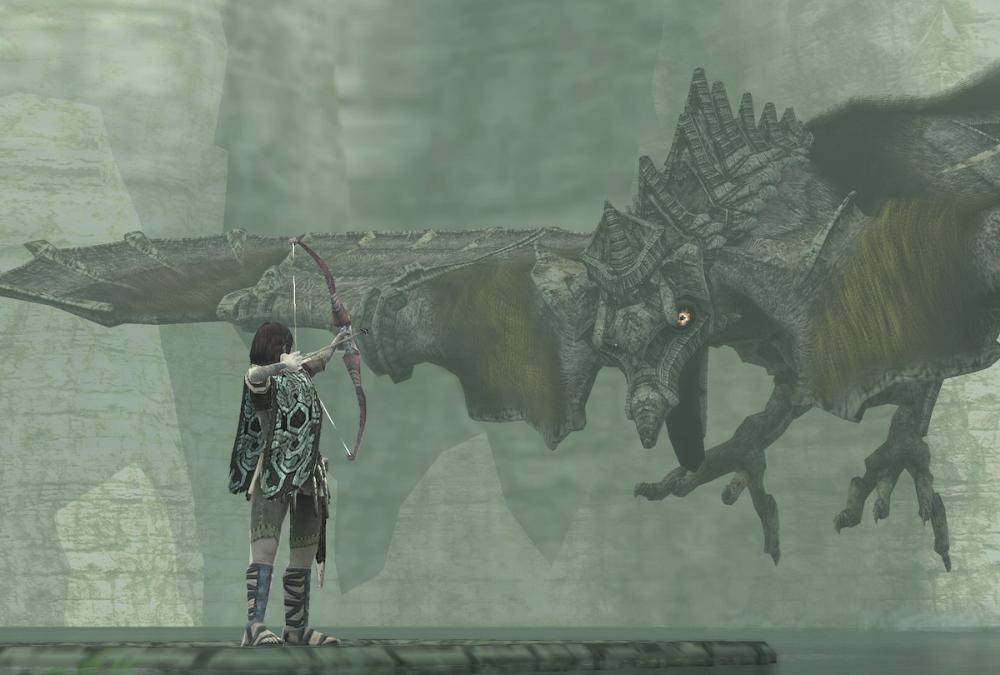Shadow of the Colossus will forever be known for its amazing narration. Team Ico’s latest title The Last Guardian is also using a similar narrative to their previous title. They are games that modern developers should learn from when developing their own story-oriented games. What is it that they could learn from the games? Let’s take a look.
Please note this article contains spoilers.
What is Shadow of the Colossus and The Last Guardian?
Shadow of the Colossus and The Last Guardian are both action adventures, directed and designed by Fumito Ueda. Shadow of the Colossus released October 18th, 2005, and The Last Guardian released December 6th, 2016. The two games share common elements throughout their narration.
Both games result in the protagonist having an animal as a companion throughout the entirety of the game. In Shadow of the Colossus, the protagonist Wander had his trusty steed throughout the entire game, while in The Last Guardian the protagonist has Trico, a hybrid creature of a bird and a dog.
Both games take the approach of two very different characters forming a friendship without there being any dialogue between them. They communicate and understand each other through motions. This just proves, with both games, that you can become emotionally attached to a character without it needing to be forced, or through dialogue.
The natural build up emotional attachment
Very often video games have a habit of throwing a character’s friendship or relationships in your face. It is very much a case of the game telling you this is your friend, you are supposed to like them. More often than not they throw more than just a few of them at you too, to the point of oversaturation.
I often cringe at such an attempt to make the player feel attached to characters, and it results in me having a hard time relating to them in any shape or form. Shadow of the Colossus and The Last Guardian on the other hand do something very different. They give you two characters, one being human and the game’s protagonist, the other an animal of some kind. The two embark on a legendary quest, and in the process form a bond.
Sure, there are other characters but most of the game is spent focusing solely on the two main charactors, the player character, and Trico. The two of them travelling through an unknown land causes this automatic bond between the player and the two characters.
By using this method the player becomes strongly emotionally attached to the characters opening up the opportunity to bring a meaningful, and impactful death to a virtual character. Once the death of a character is delivered, it truly saddens the player, due to the players emotional attachment to the character.
So often a character’s death in a video game means nothing; it is just another death of a character that isn’t real. Most of the time we haven’t spent enough time with the character to really care. An example of this would be Metro 2033, with the death of Bourbon.
You spend a few levels with him but eventually, he gets killed. While he is somewhat a character you can grow to like, despite being shady as hell, you don’t spend long enough with him for it to have an emotional impact on you. This is the difference between Shadow of the Colossus and The Last Guardian and so many other games. Spending that time with the characters makes it such a powerful experience.
The player sees more of the story than the protagonist
Video games have a habit of telling a story from the perspective of the protagonist; where the player only knows as much as the character themselves do. Indeed this is often done to give the player the feeling of actually being the protagonist, but it isn’t the most effective storytelling.
Shadow of the Colossus does things very differently. Throughout the entire game, the player is shown things that the protagonist couldn’t possibly know or realize. The first major instance of this is how Wander’s physical appearance slowly changes as he defeats more of the colossi.

The player can see these changes bit by bit but the protagonist himself is unaware of them. The second instance is after the player slays the twelfth colossus. Lord Emon, a shaman with a small group of soldiers under his command begin to pursue Wander due to his destruction of the colossi.
This immediately informs the player that things are bound to go badly, but Wander is completely oblivious to this. It is a powerful form of storytelling that few games implement, and when done right can create some of the most impactful moments in a story.
Sympathising with the protagonist
Making the death of a character within a game impactful is difficult, and is even more so when dealing with the death of the protagonist. Very often in a video game, the protagonist is someone who the player can’t relate to. It is great taking on the role of a kickass macho man and feeling like an absolute badass while doing so, but that’s all it is; a role.

The problem is, we are not like that in reality at all. If we aren’t like that, how can we relate to the character? The answer… we can’t. Therefore, their death wouldn’t mean anything to us.
Wander from Shadow of the Colossus, on the other hand, is a different story altogether. He is on a quest to revive Mono — a maiden who was sacrificed due to being believed to having a cursed destiny. The connection and relationship between her and Wander remain a mystery but it is obvious he cares for her.
He is willing to do anything it takes to bring her back, even if it means his very death. As humans, we all have loved ones who we would do anything for. When we lose someone we love and care for, if it was at all possible, we would do anything to bring them back.

It is this that makes Wander’s mission so admirable and relatable. He is doing what all of us wish we could do. The player grows an attachment to him because of the relatability. At the end of the game, Wander is killed resulting in an immensely sad moment for the player.
After everything that Wander had gone through, and all the time spent with him as he attempts to do what any of us would if possible, you can’t help but feel sorry for him. You relate to him, grow to love him all the while feeling sorry for him as you slowly see his deterioration.
It makes his death meaningful and most of all, impactful. Few games have ever pulled it off and I don’t think any game has done so as well as Shadow of the Colossus.
What should modern story-oriented devs learn from this?
The first thing that developers can learn from Shadow of the Colossus and The Last Guardian is that the emotional attachment between the player and characters cannot be forced. It is something that should come naturally. If they want the player to become attached to a specific character they must make them likeable and give the player time to gain an attachment to them.
Just throwing in character deaths left right and centre isn’t going to do anything. As gamers, we see death in video games so often that we don’t even bat an eyelid at it. If a developer wants a death to be impactful, the player must have an emotional attachment to them. Without it, it is just another death.
The second is that showing the player only what the protagonist knows is not always the best way to narrate. Sometimes showing the player things that the protagonist doesn’t know is far more striking. It allows the player to know what is happening, more than the protagonist does and it is a brilliant tool to build up the tension.

The third and final thing is for a protagonist’s death to be meaningful, the player must be able to relate and be sympathetic towards them. If the player can’t relate to them they aren’t going to feel sorry for them and won’t be able to sympathise with them upon death — Red Dead Redemption did this perfectly.
Too often developers kill off the protagonist without giving the player a reason to really care. Without the reason to care, the characters death will be meaningless.
While these three points may seem simple and near impossible to mess up, the reality of it is, they are hard to accomplish. Shadow of the Colossus, however, managed to pull all three of them off in one game all the while creating a wonderful world and having excellent gameplay. This is what modern story-oriented developers should learn from this brilliant title.











Published: Dec 6, 2016 02:00 am